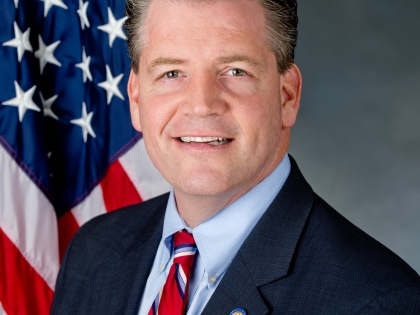
Senator Murphy co-sponsors bill to make Kendra's Law permanent
May 3, 2017
-
ISSUE:
- kendra's law
- Mental Hygiene

ALBANY, NY - On January 3, 1999, Kendra Webdale, a 32-year-old journalist, was standing alone at a subway station when Andrew Goldstein, a schizophrenic with a long history of mental illness, hurled her in front of a train. Kendra's death focused greater attention on the issues of public safety and increased medical care for the mentally ill, resulting in Kendra's Law. Kendra's Law allows court-ordered assisted outpatient treatment for individuals who are perceived as a threat but do not voluntarily seek help.
A strong supporter of Kendra's Law, Senator Terrence Murphy has co-sponsored a bill (S516), which prevents Kendra's Law from expiring on June 30, 2017, and makes its provisions permanent.
"Some individuals suffering from mental illness are unable to care for themselves in a community setting. As a result, they can pose a serious threat to themselves and others they may come in contact with," Senator Murphy said. "By making Kendra's Law permanent, these individuals can receive treatment without being forced into a hospital. This new measure is a less restrictive, less expensive, more humane way to help people with mental illness. It enables them to maintain their civil liberties and will lessen the occurrence of the type of tragedy that took Kendra's life."
Senator Catharine Young, who authored the bill in the Senate, said, "Too frequently, the heart-wrenching consequences of people suffering from mental illness without receiving needed care and support becomes apparent at devastating costs. Of course, not all people with mental illness are violent, but when severe psychiatric issues go untreated, it can become a major contributing factor in violent acts or suicide. Before Kendra's Law, the system was flawed because it could allow people with the most serious mental health disturbances, who pose a risk to themselves or others, to deteriorate before they got help. By strengthening and permanently implementing Kendra's Law, people with profound mental illness will get the court-ordered assisted outpatient treatment they need to prevent violence, suicide, and incarcerations. It will protect the public while vastly improving the quality of life for those grappling with severe mental illness."
Kendra's Law was first enacted in 1999 after the tragedy that took her life, and a subsequent incident in April 1999 in which Edgar Rivera lost his legs when he also was pushed in front of a subway train. Since Kendra's Law was passed, studies have found that patients given mandatory outpatient treatment who were more violent to begin with, were four times less likely than members of a control group to perpetrate serious violence after undergoing Assisted Outpatient Treatment (AOT). The studies also found less frequent psychiatric hospitalizations, shorter lengths of hospitalizations, reductions in the likelihood of arrest, higher social functioning, less stigma, and no increase in perceived coercion.
The law is designed to prevent serious harm to the mentally ill person or others, but gaps exist in the current system that must be fixed to make it more effective. The measure would not only make Kendra's Law permanent, but includes several provisions to enhance the current system of AOT including: requiring follow-up on those who move during the AOT period to ensure that they receive their treatment; requiring an evaluation for AOT when mental health patients are released from inpatient treatment or incarceration so that people needing services do not fall through the cracks; requiring counties to notify the Office of Mental Health (OMH) when
an assisted outpatient is missing and thereby unavailable for an evaluation as to whether he or she continues to meet AOT criteria, and requiring the Commissioner of OMH to develop an educational pamphlet on the AOT process of petitioning so that family members have information on how to file a report.
The bill has been sent to the Assembly, where it is sponsored by Assemblywoman Aileen Gunther (A604).
Share this Article or Press Release
Newsroom
Go to NewsroomSenator Murphy to Honor Exceptional High School Students
February 23, 2018



